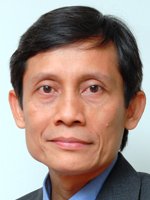TVET@Asia Issue 2: Vocational teacher education and research as a task and challenge for the East- and Southeast Asian region
East and Southeast Asia are in the process of experiencing a period of outstanding economic growth and extraordinarily dynamic development and in view of the political regionalisation process achieving a common market by 2015 it should be lent a significant degree of additional momentum. To sustain the rapid development and face the challenges caused by the structural changes of economies, those societies involved will be depending on a highly skilled workforce and thus on functioning TVET-systems to meet both economic and societal demands. TVET-systems are in a process of permanent adaptation to the socioeconomic environment, which leads to an all-round increase and improvement of praxis-orientation in teaching-learning processes. It is evident that the sole employment of the traditional “chalk-and-talk” method in teacher-centred educational settings, does not produce the required workforce.
Vocational teacher education has a focal position in furthering the development of vocational education. The vocational college teacher is charged with the task of educating workers in special areas of expertise and enabling the student to react well and appropriately to current and future professional, economic and societal demands. The vocational college teacher working in the TVET system has to update, adapt and further develop through the entire duration of his/her work life. In these most necessary, bottom-up processes the vocational college teacher acts as a change agent; an individual who actively shapes and designs the TVET system and makes it enduringly future-secure.
Vocational teacher education and further education constitutes a central field of action in education policy. Complying with the logic of developing societies and in a world where technologies and processes are becoming increasingly demanding, it is vital that vocational teacher education is grounded in the universities – as is in fact normally the case in the region. Nonetheless, universities can provide only a very limited scope of practical activity, learning experiences and competences, which is why vocational schools and in-company learning sites form additional vital parts of a comprehensive system for vocational teacher education. In developed societies, however, universities fulfil an essential function in which an accumulation of experts’ knowledge can be injected into systemic innovation processes as intended through action-research on vocational education. The generated knowledge can be tapped into via dissemination across national borders. Research can and must afford an independent research-result-based contribution to the further development and reform of vocational education. Over the past 2 years RCP member universities have provided evidence-based recommendations resulting in national policy reforms and preparing the ground for an on-going development of institutionalized research, as clearly set out by the Thanyaburi Statement.
To contribute most effectively to the development and systemic progression of TVET-systems, the Regional Cooperation Platform (RCP) and its 12 member universities focus primarily on
- improving vocational teacher education (VTE),
- carrying out action-research on vocational education (RVE) and
- supporting regional integration processes in terms of both VTE and RVE.
The 2nd Issue of TVET@Asia is reflecting the ongoing discussion among the universities of the RCP. The articles are based on common research activities and on contributions being made during the Conference „Vocational Teacher Education and Research as a Task and Challenge for the East- and Southeast Asian Region” which was conducted at Tongji University on the 24th-25th October 2013 in cooperation with SEAMEO VOCTECH and the UNESCO regional office Bangkok. The conference was funded by the German Ministry of Economic Development and Cooperation (BMZ) and supported by the Deutsche Gesellschaft für Internationale Zusammenarbeit (GIZ).
The Editors of Issue 2
Thomas Schröder, Paryono, Gwang-Chol Chang, Feng Xiao
Citation
Schroeder, T., Paryono, Chang, G.-W., & Feng, X. (2013). Editorial Issue 2: Vocational teacher education and research as a task and challenge for the East- and Southeast Asian region. In: TVET@Asia, issue 2, 1-2. Online: https://www.tvet-online.asia/issue2/editorial_tvet2.pdf (retrieved 30.12.2013).





